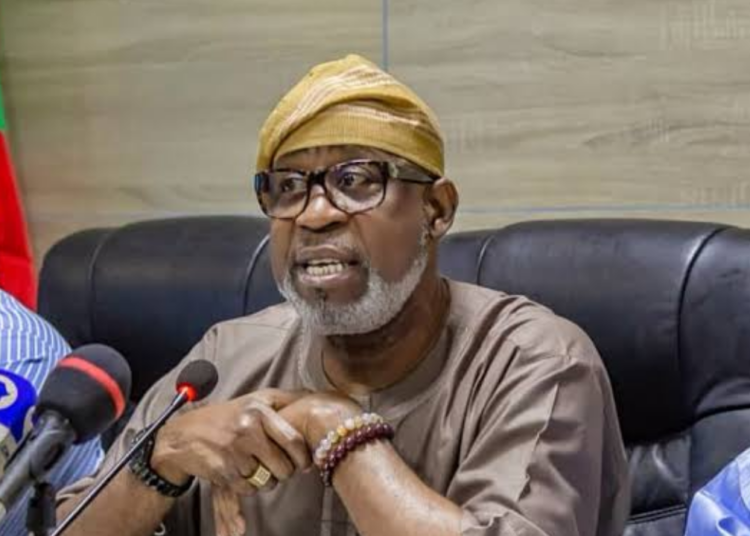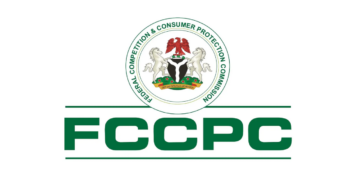Nigeria’s multi-billion-dollar solid minerals sector is in urgent need of a total makeover that will result in a drastic change in the way the country generates its revenues.
The sector in Nigeria, though worth an estimated $35 billion, according to data from Boston Consulting Group, yet it contributes less than two per cent to the country‘s Gross Domestic Product (GDP), compared to at least 10 per cent on average across Sub-Saharan African countries.
This is a significant disparity that highlights the need for increased investment and development in the sector.
The solid minerals sector includes a range of natural resources such as gold, tin, limestone, coal, and many others. These resources have the potential to drive economic growth and create jobs, but they are currently underutilised due to a lack of infrastructure, funding, and government support.
The 2021 industry report of the solid minerals sector, released by the Nigeria Extractive Industries Transparency Initiative (NEITI) on Monday showed that the country realised a paltry N193.59 billion revenue from the sector in the whole of 2021.
The figure, though amounted to an increase of N60.32 billion or 51.89 per cent growth, when compared to the 2020 revenue flows of N116.82 billion, „is still abysmal considering the potentials of the sector to the Nigerian economy,” NEITI observed in its report.
Of the total N193 billion in revenue earned in 2021, the sector contributed less than 1% to the national GDP, accounted for 2.62 per cent of total revenue, and 0.24 per cent of total exports.
The report also showed earnings from the sector between 2007 and 2021, a period of 15 years, was merely N814.6 billion.
Despite these abysmal indices, investors and stakeholders in the solid minerals sector are optimistic about the future and believe that with the right policies and investments, the sector can contribute significantly to Nigeria‘s economic growth and development.
To change the narrative, the minister of Solid Minerals, Dele Alake has said it would no longer be business as usual for the sector as the abysmal performance is no longer acceptable.
How did a country with precious minerals in massive proportions fail to use these resources to liberate the citizens? Alake asked at a press conference laying down his roadmap for the revamping of the sector on Sunday.
Nigeria has at least 44 mineral deposits in over 500 locations across the country but they remained largely untapped commercially. Operations in the industry are largely driven by small-scale businesses and illegal miners, which is largely responsible for the muted jobs contribution to the country’s employment data. For instance, the number of jobs generated by the mining sector is 12 times higher in Australia, China, and Russia than Nigeria, while foreign direct investment inflow into the country’s mining sector is one-third of Kazakhstan, despite Nigeria‘s total GDP being twice the size of that of Kazakhstan, according to a report from Boston Consulting Group.
Alake said his ministry is poised to revamp the sector that has failed to contribute to the economy and human capital development despite it having over two million operators, including over 633 small-scale companies and 251,500 registered miners by addressing such factors as “inefficient geo-data, weak implementation and enforcement, poor environmental, safety, and health policies, fragility and conflict, unregulated artisanal mining, low technical capacity, lack of access to financing, weak inter-governmental and inter-agency coordination and weak federal/state relations over mining land as the severe barriers to the development of the sector.”
According to him, gathering precise data is an urgent precondition for the take-off of the sector, adding that though a lot of funds were expended on gathering data on occurrence and incidence of data across the country which depict the areas — towns and local government — of minerals deposits but an investor is only interested in quantum in-depth.
“However, as resourceful as this is, it is grossly insufficient to make investment decisions. An investor is not just interested in the location of a particular mineral. They want to know the quantum in depth and area before deciding on the cost and profitability. This lack of precision of our current data has impeded investment. It has turned licensees into star-gazing, uncertain, unsure entrepreneurs praying for luck to strike the amount of deposits that can offset their investments instead of confident, assured risk-takers sure that the accurate, scientific data at their disposal are reliable enough for their investment projections,” he said.
To transform the sector, Nigeria is proposing a state company similar to the NNPC, a state-owned energy company. The proposed company, the Nigerian Solid Minerals Corporation, is expected to have subsidiaries, “doing business in the seven priority areas that require immediate intervention and focus: gold, coal, limestone, bitumen, lead, iron-ore, and baryte,” according to Alake. Existing enterprises, such as the National Iron-Ore Company, and ongoing arrangements, such as the Bitumen Concessioning Programme, “will be reviewed to fit into this new system,” the minister said.
Speaking on the proposed corporation, Akale said the company will seek and secure partnership investment agreements with big multinational companies across the world to leverage on the attractive investment-friendly regime operating in the country to “secure massive Foreign Direct Investment for the mining sector. The positioning of the national corporation as a guarantor and protector of the partnership agreements is expected to assure partners of our seriousness and fidelity,” he said.
Similarly, the corporation is expected to provide robust support for Nigerian businessmen seeking funding abroad and help to authenticate their investment proposals to speed up the commitment of their partners to invest. The company will also help secure financing for local businesses to help “facilitate investments in mining at interest rates that will be mutually agreed.” The emergence of the corporation in the business of mining will enable the ministry to focus more on its core regulatory and promotional mandates of sanitising the sector and developing ideas, processes, and institutions that facilitate the ease of doing business in the industry, Alake said.
Nigeria’s solid minerals minister said the country is relying on big data to help it contribute at least 50% of the national GDP, an ambitious project analysts are skeptical of. While Nigeria is seeking to divest from reliance on oil as its major revenue, industry watchers query the feasibility of the minister’s ambition.
Still, Alake said that he believes that data-driven decisions will lead his agendas and help the ministry reach his target. “Without robust, precise, and accurate data internationally authenticated by the geoscience community and transparently published for easy verification and adoption, international investment will be a pipe dream,” Alake said.
“Accordingly, the most urgent, immediate, and critical precondition for the real take-off of the sector is the gathering of precise geological data. Don’t get me wrong. A lot of funds have been expended on gathering data on the occurrence or incidence of minerals across the country.
This significant exercise has been very positive in uncovering the locations of minerals in each town or local government in the country.
“The Ministry of Solid Minerals shall soon propose to the Federal Executive Council a precise investigation of selected deposits of the seven priority minerals- Gold, Coal, Limestone, Iron-ore, Bitumen, Baryte, and Lead/Zinc – to scale this hurdle. Other minerals will feature in subsequent investigations under the National Integrated Mineral Exploration Project, NIMEP,“ he added.
Securing the investment environment, Combating illegal mining: Due to the Nigerian government‘s negligence and abandonment of the mining industry, activities of illegal miners thrive and have been prevalent for decades. In fact, a large percentage of mining operations in Nigeria are artisanal in nature and informal.
The federal government in 2017, through the then minister of Mines and Steel Development, Kayode Fayemi, disclosed that the country lost about $9 billion to the export of proceeds of illegal mining activities. But for Alake, the sector being driven by artisanal miners is the federal government‘s strategy for the development of the sector through accommodation and mainstreaming of artisanal miners.
He, however, lamented how actors in the illegal mining sector, which has continued to sabotage the nation‘s economy, have chosen to defy all entreaties to be formalised.
He said, „For the last time, let me declare that the Ministry is giving such persons 30 days grace to join a miners‘ co-operative or find another vocation to do. On the expiration of the period, the full weight of the law will fall on anyone seen on a mining site without a determinable status. This message will be interpreted into Nigerian languages and broadcast on the radio to ensure no one is ignorant of this directive.
„From October, a rejuvenated security regime will become active in the solid minerals sector. This will include the Mine Police, sourced from the Nigeria Police and specially trained to detect illegal mining and apprehend offenders. The new Mines Surveillance Security Task Force will coordinate the Mines Police and proactively address high-risk incidences of breach of Mining Laws. The federal and state governments will also be encouraged to allocate the prosecution of cases against illegal miners to competent courts.“
Attracting investment into Nigeria‘s mining sector: President Bola Tinubu‘s efforts at rejigging the nation‘s economy through diversification could be considered one of the reasons for splitting the Ministry. However, the country must be ready to attract local and international investors to the extractive sector.
To address this, Alake said the current administration is convinced securing an investment environment is a precondition for attracting investors to the ministry. However, he said stakeholders in the sector are in consensus about the activities of illegal miners. However, the minister noted that his ministry is also poised on attracting international investors through aggressive promotion of mineral deposits.
„We shall organize country visits and tours, exhibitions, conferences, advertisement campaigns, and presentations to tell significant stakeholders in the global industry that Nigeria is the next profitable destination for investment. Already, we are reviewing the draft Nigerian Mining Act in comparison with economies that have recorded significant achievements in Foreign Direct Investment in Mining to introduce international best practices. We are also exploring how to secure local content in the emerging industry to ensure a fair deal for Nigerians by reviewing the reports of the Nigerian Extractive Industries Transparency Initiative on the Solid Minerals Sector,“ he said.





